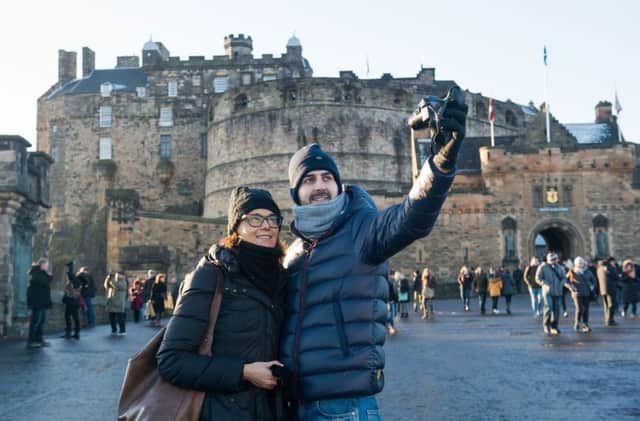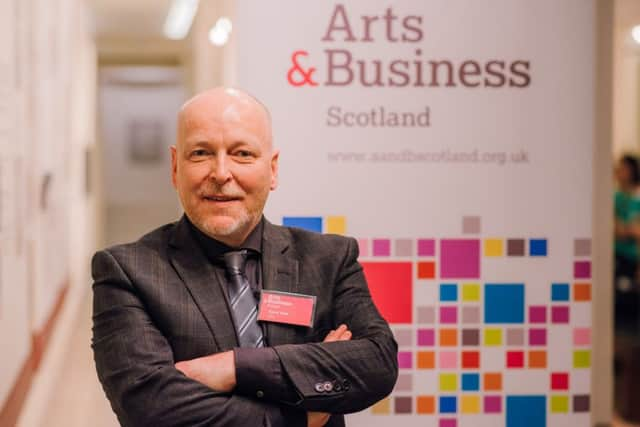David Watt: Let’s build a culture of opportunity in a world that wants our unique heritage


Historical documentation of and creative responses to our diverse marine, island, coastal and inland geography combine to deliver truly unique cultural experiences for the national and international tourists who flock here year on year.
Annually, 3.8 million visitors enjoy the delights of our festivals, exhibitions, performances, historic environment and creative industries, which are not only vital to our economy, education and lifestyle, but also make Scotland one of the most attractive destinations for international companies to showcase cultural and creative outputs to diverse new audiences.
Advertisement
Hide AdAdvertisement
Hide AdIf these companies and performers visit our shores to grow cultural and business markets, are we doing enough to maximise opportunities for Scottish organisations in international arenas?


We need to consider how we can proactively find ways to support culture and heritage in Scotland at a time of reduced public spending within the context of political challenges and other strategic priorities.
Arts and Business Scotland seeks to fill this gap by highlighting opportunities for the culture, heritage and business sectors to connect and thrive. In 2017, we launched the Culture & Business Fund Scotland (CBFS) as an incentive scheme to enable business, culture and heritage organisations to build effective creative partnerships. These partnerships bring benefits, such as embedding entrepreneurship, that unlocks organisational potential, or developing new market opportunities that unlock commercial potential. CBFS has already generated investment of more than £1.1m to support ambitious cultural and heritage delivery in all 32 local authority areas.
This was partly achieved through regional advocacy and training that last year was attended by 553 people from local organisations and businesses. This triggered applications for the CBFS to match fund 30 culture and business partnerships. 27 of these businesses collaborating with the sector for the first time.
Interestingly, three of these businesses were non-Scottish-based companies who saw the value and return on investment that would raise awareness of their brand, products and services within, what is for them, an untapped international market.
If international businesses recognise this return, can we do more to raise awareness within Scottish-based companies of how creative partnerships can also bring international market development opportunities?
Can we build upon the success of events such as Tartan Week in New York, and the next Tartan Day Parade on 4 April, 2020, by using cultural exports to provide a platform for business development opportunities? Cross-sector collaborations could provide resources to reach new audiences and influences as we take our place on the global cultural stage.
As the CBFS programme enters its third year, we want to reflect upon the successes to date, to see how we can evolve and accelerate this model for collaboration, not only domestically but also internationally.
Advertisement
Hide AdAdvertisement
Hide AdThe business sector wishes to improve Scotland’s low export performance – a key objective for the Scottish Government and Scottish Enterprise. We believe that the benefits gained through the CBFS can be better shared. This could upskill our companies and culture and heritage organisations, providing the tools and contacts to deliver cultural and business offerings on the world stage.
At A&BS, our membership of more than 200 culture and heritage organisations has made us aware of the extensive and diverse international working already being undertaken, with national companies and smaller organisations engaging audiences across the Americas, the Far East and Europe – the latter of which will require a rethink on how to develop business opportunities post-Brexit.
It is our aspiration to undertake an in-depth audit of these activities and provide a platform to share such cross-sector collaborative opportunities, so businesses, and culture and heritage organisations that have the same international market plans or aspirations, can be linked to explore potential partnerships.
We are currently exploring ways to achieve this, be that through new sources of funding or finding willing partners here and abroad that we can work with to broker international collaborative working. With global uncertainty and pessimism around how Brexit will affect international trade and relations, there has never been a more important time for Scotland to use culture and heritage to connect with the world, not only for cultural well-being but for economic success.
David Watt, chief executive, Arts & Business Scotland.